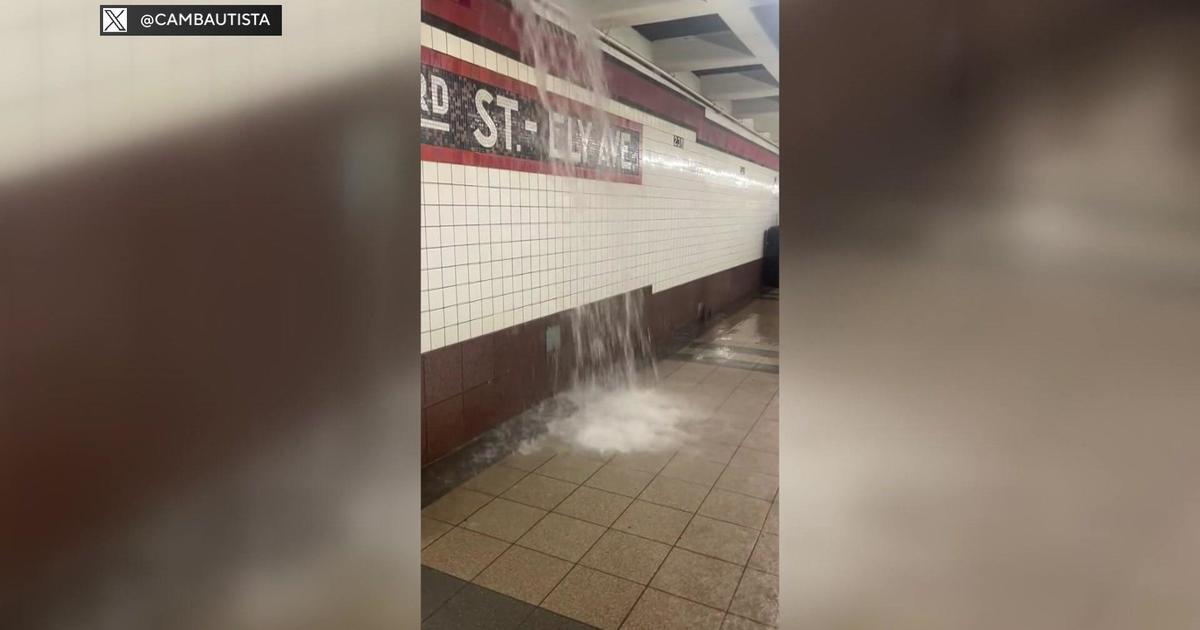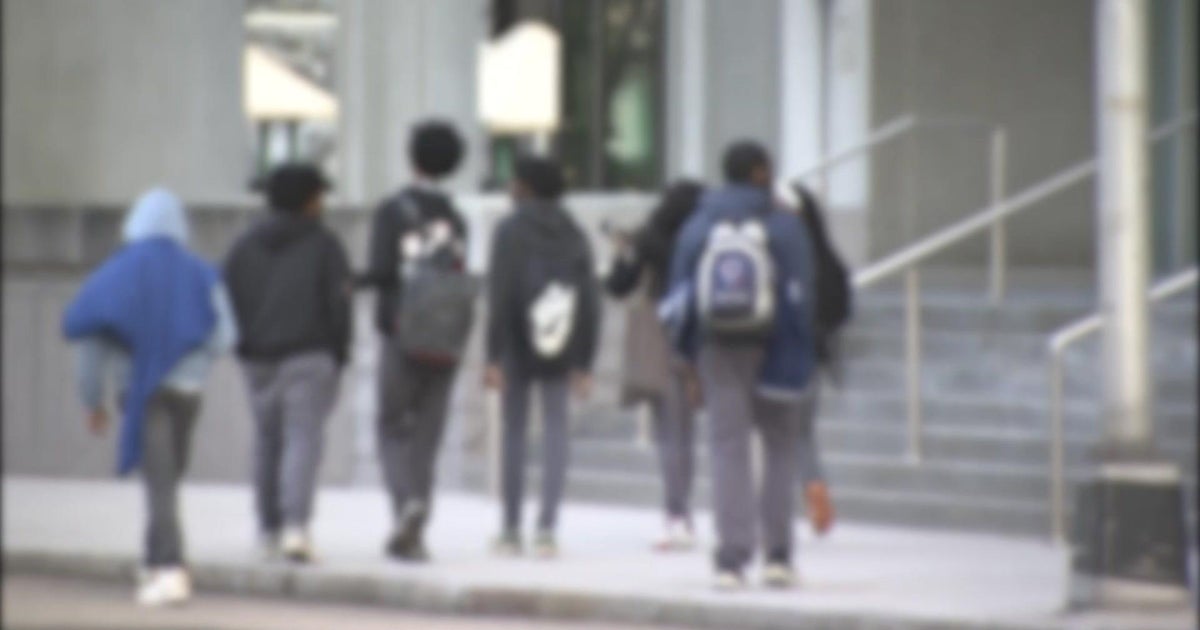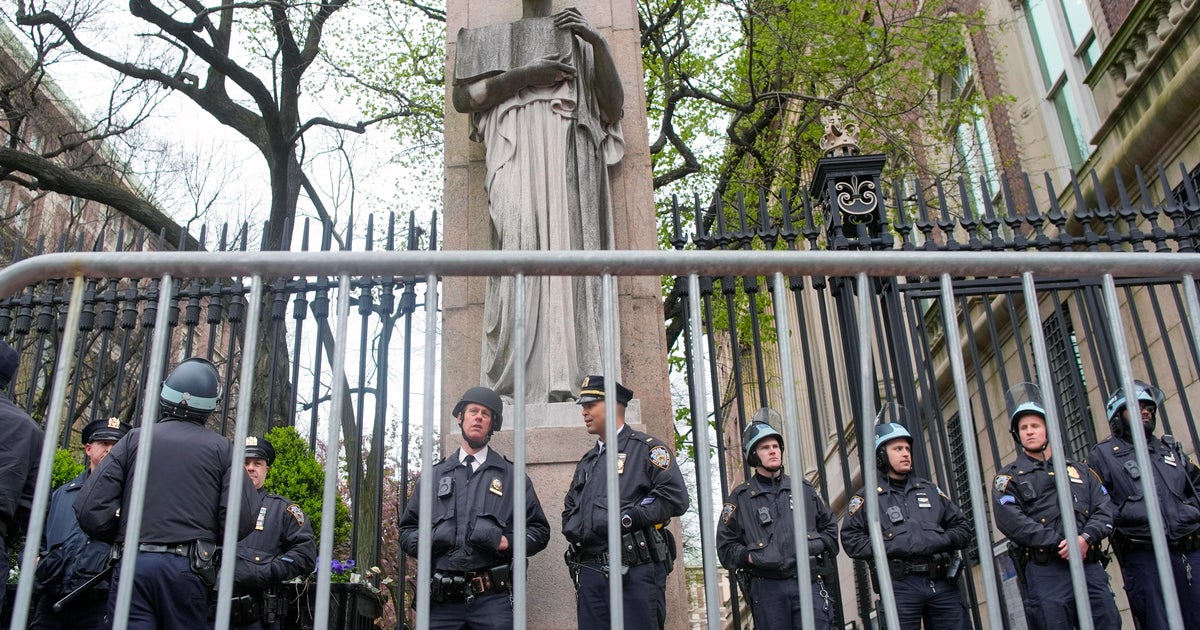NYC's Plan For Pre-K Prayer Breaks Raises Concerns
NEW YORK (CBSNewYork/AP) -- New York City Mayor Bill de Blasio's ambitious plan to expand public prekindergarten for all 4-year-olds depends in part on the participation of Jewish, Christian and Muslim schools, under a proposal that would permit religious instruction and prayers during midday breaks.
But civil liberties groups are already objecting to the plan, which would take effect next fall, saying allowing a prayer break in a publicly funded classroom may violate the constitutional separation of church and state.
"It's kind of like waving a red flag in front of a bull," said Barry Lynn, executive director of the Washington, D.C.-based Americans United for Separation of Church and State. "This seems to be asking for a lawsuit."
De Blasio's free, full-day prekindergarten plan began last year as his signature initiative, a way to address his goals of narrowing the wealth gap by saving parents the cost of private pre-K tuition, and jump-starting the academic performance of the city's youngsters. It began last fall with 53,000 children, and the goal is to boost that number this year to 70,000.
Some pre-K classes are in public schools, but many are run by religious groups and other community-based organizations under contract to the city. The latest proposal is aimed at increasing the participation of private religious schools, particularly the Orthodox Jewish schools that serve a growing portion of the city's population. A 2012 study by the UJA Federation of New York found that 40 percent of Jews in the city identified themselves as Orthodox, up from 33 percent in 2002.
De Blasio's administration announced last month that pre-K classes next year will be permitted to break in the middle of the day for "non-program" activities such as prayer. Additionally, schools will be invited to operate six days a week in order to meet the minimum number of classroom hours.
It is similar to an arrangement at pre-K classes currently operating out of Roman Catholic schools.
Rocio Fidalgo, a spokeswoman for the Roman Catholic Diocese of Brooklyn, said 22 of the diocese's schools are participating now and 14 more have applied for next year. An optional half-hour of religious instruction takes place at 8 a.m., with the regular school day starting at 8:30 a.m.
But a prayer break in the middle of the day is seen by civil libertarians as more problematic than a prayer before the regular school day starts. The midday break means schools have to provide a space for any kids who "opt out" of the prayer and something for them to do.
Donna Lieberman, executive director of the New York Civil Liberties Union, called the break "an end run around the separation of church and state."
"We have urged the city to audit programs that are sponsored by a religious group to ensure that the prohibition against turning these into religious programs is honored," Lieberman said.
At the same time, a major Jewish organization says the city's pre-K program will still be too restrictive for many religious schools to participate.
Maury Litwack, director of state political affairs for the Orthodox Union, said the city's push for full-day pre-K will leave many Jewish schools behind because the city's mandated six-hour, 20-minute day -- longer than the New York state-mandated five hours -- leaves too little time for Jewish instruction, mostly in the Hebrew language.
In a compromise outlined in a letter last month from Deputy Mayor Richard Buery, pre-K providers will be permitted to shorten the secular school day if they stay open Sundays so that kids can log a total of 31 hours and 40 minutes of nonreligious education in a week. Schools also will be permitted to open on federal holidays such as Christmas.
Litwack called the compromise unworkable.
"Practically speaking, having 4-year-olds attend school on Sunday and federal holidays, it's not a realistic solution," he said.
Sherri Horowitz, early childhood director at the Al and Sonny Gindi Barkai Yeshivah in Brooklyn, agreed. "It would be absurd," she said. "I'm not going to have teachers come in on Sunday."
Barkai's current pre-K students are in the city-funded program for half the day. The other half, which parents pay for, includes religious instruction and is in Hebrew.
Schools that offer full-day, city-funded pre-K are reimbursed an average of $10,000 a year per pupil. Parents who pay for private pre-K spend anywhere from $7,000 to $13,000 or more a year.
During a classroom visit last week, Barkai Yeshivah teacher Renea Elbaz used a song about five frogs sitting on a log to teach numbers. A girl asked Hebrew teacher Luna Pinedo if she could get a drink from the water fountain and was gently reminded to ask in Hebrew.
Horowitz said her school's participation in city-funded pre-K has saved families thousands of dollars a year and has given her staff access to useful professional development.
"It became such a great program," Horowitz said.
Maya Wiley, counsel to the mayor, said the city is doing its best to "penetrate every single community" with the pre-K program.
Wiley, who formerly worked for the American Civil Liberties Union, said the pre-K program is constitutional even with the prayer break, which taxpayer dollars will not pay for.
"We're not violating any law here," she said. "All we're doing is making sure we can maximize the number of seats that we can create for kids."
As for the Orthodox schools that say they won't be able to take part, Wiley added, "It's also true that we can't please everyone."
(TM and © Copyright 2015 CBS Radio Inc. and its relevant subsidiaries. CBS RADIO and EYE Logo TM and Copyright 2015 CBS Broadcasting Inc. Used under license. All Rights Reserved. This material may not be published, broadcast, rewritten, or redistributed. The Associated Press contributed to this report.)



